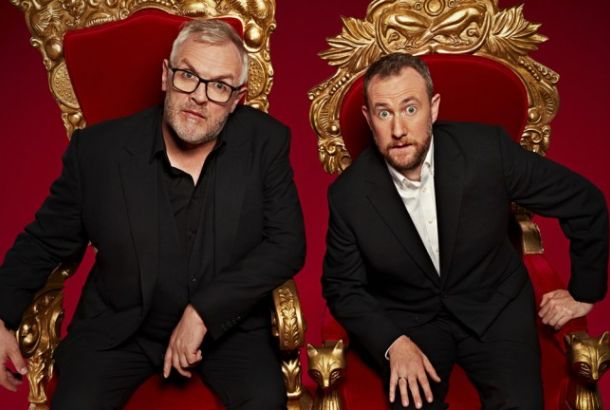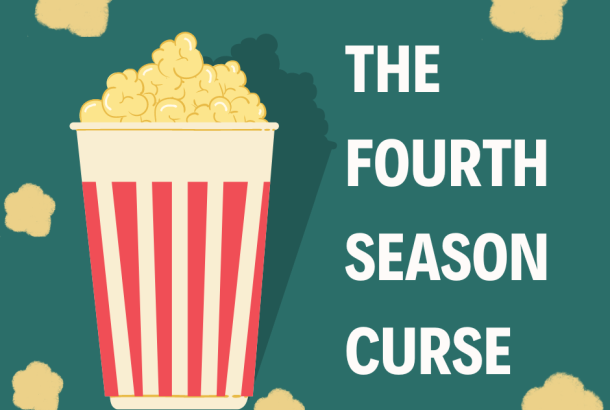How HBO’s The Idol crashed and burned

Sam Levinson did not have a great summer as HBO’s The Idol was torn apart over its five-episode run. The series’ creator flitted between various explanations of what the show actually was. Levinson spent the show’s entire run shifting the goalpost to somehow rebut every critic’s negative interpretation; one moment the show was a satirically excessive metaphor for Britney Spears, the next a raw, gritty drama exploring the effects of fame. No matter its original intention, Levinson’s latest project inadvertently became the Fyre Festival of prime-time TV. But what exactly went so, so wrong?
Trigger Warning: Discusses domestic and sexual abuse.
The Idol was a disaster from the get-go via development. Originally set to be directed by Amy Seimetz, who was dropped mid-production following reports that current co-creator Abel ‘The Weeknd’ Tesfaye was unhappy with the show’s “female perspective“.
Seimetz was swiftly replaced by Euphoria creator Sam Levinson, who embarked on an overhaul of the script and concept, bloating the series’ budget to $75 million to cover re-shoots. A stacked cast of young celebrities from nepo-titan Lily-Rose Depp to popstar Troye Sivan and Blackpink’s Jennie Kim generated plenty of online hype. But early reviews labelling the show “torture porn” turned anticipation sour. By the time the first episode aired, featuring a depraved, masked sex scene and Levinson’s new invention of a micro-bra, audiences were already tired of The Idol.
The show dragged its feet for another four episodes, with sparse hints of genuine depth ruined by the exploitative depiction of Jocelyn’s (Lily-Rose Depp) sexual relationship with club owner Tedros (Abel Tesfaye). Levinson’s masterclass in shock value content is wrapped up in a plot twist so tone-deaf that it borders on the unbelievable when it’s revealed that Jocelyn’s abusive relationship with her mother was a fabricated backstory used to further her career. So, there you have it: ‘abused’ women just might be heartless masterminds masquerading as trod-upon starlets. Feminists everywhere breathe a sigh of relief that Sam Levinson finally dropped his anticipated thoughts on MeToo.
In an industry attempting to root out its predators, the over-arching sentiment that abuse allegations are a weapon flippantly deployed by scheming women isn’t in-vogue. Not only did this twist dismiss any fragments of accurate commentary, but it was ineffective in making us feel betrayed by Jocelyn’s lies, as we were never made to care about her in the first place. The foundations of the ending had the potential to criticise the artificiality of the Hollywood machine and the sociopathic ambition of its stars. But the show’s relentless hammering of this very same point for the entire series and Levinson’s painful inability to read the room made the ending frankly vapid and repetitive.
This failed dissection of social issues is a commonality in Levinson’s work. His infamous refusal to use a writer’s room has grave effects as Euphoria’s takes on body image and high school relationships are limited because the writing is so limited. The canonically underage female characters are frequently abused or depicted nude, justified by vague assertions of the show’s supposed realism.
Levinson blurs the line between teen angst and genuine abuse in Euphoria, refusing to alter the show’s tone to address the serious topics more deeply. He has the opposite problem in The Idol, shifting tone and genre so frantically from scene to scene that the piece feels disjointed. Euphoria, however, excels when its actors take the reins, and The Idol’s casting of The Weeknd prevents the latter from doing so. Tesfaye lacked the acting chops to add meaning to scenes or to ground the eccentric character. With the expertise of a professional actor, Tedros could have been a satirical caricature of hyper-masculinity and the modern ‘grindset’ culture. Instead, we got handed Tesfaye’s misguided Tommy Wiseau-style performance with a rattail.
Plenty of subpar shows have excelled with audiences, so why did this one underperform? Ultimately, it comes down to the show’s failure at effective satire. The show’s gratuitous sex is never justified by effective commentary and feels more like exploitation than a criticism of a cultural clamour for sex, depravity and young, hot things. Levinson isn’t in on the joke, he is the joke. The Idol also fails to realise that shock attracts audiences, but won’t maintain their interest. Viewers were confused by the show’s wordy messaging and repetitive scenes, thus it became the one thing it promised not to be – boring.
Sex was sold when audiences were forced to tune in on Sunday nights to get their fill of debauchery, but the readily available, free pornography littered across the internet has made the clamour for TV sex obsolete. The most popular TV shows of 2023 barely even touch on sex scenes, like Succession, The Bear and The Last of Us, highlighting a cultural fatigue with excessive sex on screen, and the men who continue to justify it.
Above all, the most agonising part of The Idol is its wasted potential. We see ghosts of what the show could have been in the first episode’s emotional opening sequence to the confrontations with record executives that poison a scummy industry. The Idol‘s production team sacrificed a promising concept and cast to produce five convoluted, contradictory episodes that lazily imply meaning without ever delivering any.
The show would have blacklisted any other director but, with the confirmation of Euphoria‘s third season, audiences have not seen the last of Levinson’s clumsy stagger towards a clear directorial vision. Is he a film bro on steroids? A genius of satire on satire on satire? Two pre-teen boys with unrestricted internet access in a trenchcoat? As long as Levinson is allowed to sit smugly behind his smoke-screen of pseudo-satire, we may never know.







